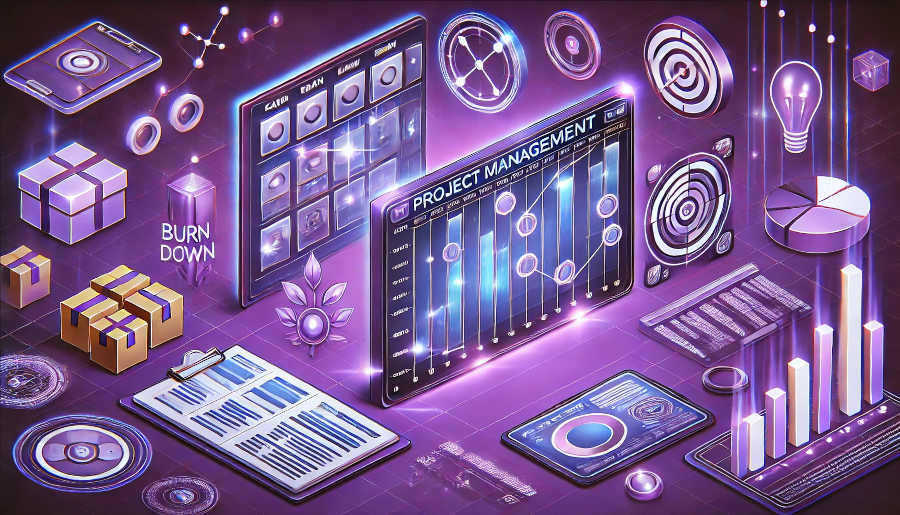Project milestone plans play a crucial and multi - faceted role in enhancing team collaboration efficiency. In the realm of project management, a milestone plan serves as a roadmap, clearly demarcating the key points and stages of a project. It is not merely a set of dates on a calendar but a strategic tool that aligns team members, fosters communication, and drives progress.
Milestones are the significant events or achievements within a project. They act as markers that help in measuring progress, ensuring that the project is on track, and enabling teams to anticipate potential challenges. By having a well - defined milestone plan, teams can better understand their roles and responsibilities at each stage of the project. This clarity is fundamental to effective collaboration as it reduces ambiguity and the likelihood of misunderstandings.
Moreover, milestone plans provide a common framework for all team members. Whether it's a small startup team or a large corporate project team, everyone can refer to the same set of milestones. This shared understanding creates a sense of unity and purpose, which is essential for teams to work together towards a common goal.
Clear Definition of Goals and Roles
One of the primary ways project milestone plans improve team collaboration efficiency is by clearly defining goals. Each milestone represents a specific goal that the team needs to achieve. For example, in a software development project, a milestone could be the completion of the alpha version of the software. This clear goal gives the team a tangible target to work towards.
When goals are well - defined, team members can better understand their individual roles in achieving those goals. In the case of the software alpha version milestone, the developers know they need to write and test the code, the designers need to ensure the user interface is in place, and the quality assurance team needs to start their initial checks. This breakdown of tasks according to milestones allows for a more efficient distribution of work.
Furthermore, the clarity of goals and roles provided by milestone plans helps in setting realistic expectations. Team members can see how their work fits into the overall project timeline and what is expected of them in terms of quality and delivery. This reduces the chances of over - commitment or under - performance, as everyone is aware of the specific goals and their part in achieving them.
Enhanced Communication and Coordination
Milestone plans act as a communication hub for the project team. They provide a regular rhythm for communication, as teams often review progress against milestones at set intervals. For instance, a weekly or bi - weekly meeting to discuss whether the team is on track to meet the upcoming milestone. This regular communication ensures that any issues or bottlenecks are identified early.
In addition, milestone plans facilitate cross - functional communication. In a project involving multiple departments such as marketing, sales, and product development, each milestone requires input and collaboration from different areas. For example, when a new product is about to reach the launch milestone, the marketing team needs to coordinate with the product development team to understand the features and benefits to create an effective marketing campaign.
Moreover, milestone plans help in coordinating resources. As the team approaches a milestone, it becomes clear which resources are needed and when. This allows for better resource allocation, ensuring that the right people and materials are available at the right time. This coordination across different aspects of the project is essential for smooth progress and efficient collaboration.
Motivation and Accountability
Milestones serve as a source of motivation for team members. Achieving a milestone is a significant accomplishment, and it gives team members a sense of pride and satisfaction. For example, when a construction team reaches the milestone of completing the foundation of a building, it is a visible sign of their hard work and progress. This sense of achievement can boost morale and motivation, leading to increased productivity.

At the same time, milestone plans create a sense of accountability. Each team member is responsible for their part in achieving the milestone. If a milestone is not met, it is clear which tasks or individuals may have contributed to the delay. This accountability encourages team members to take ownership of their work and strive to meet the set goals.
Furthermore, the visibility of milestones within the team and to stakeholders also adds to the sense of accountability. Stakeholders can monitor progress against milestones, and this external scrutiny can further drive the team to perform well. This combination of motivation and accountability is a powerful factor in improving team collaboration efficiency.
Early Problem Detection and Resolution
Another important aspect of how milestone plans improve team collaboration efficiency is through early problem detection. By regularly reviewing progress against milestones, teams can quickly identify if there are any deviations from the plan. For example, if a milestone for delivering a marketing campaign is approaching, but the creative content is not yet ready, it is a clear sign that there is an issue.
Once problems are detected, milestone plans also help in facilitating resolution. The team can come together to analyze the root cause of the problem. In the case of the delayed marketing content, it could be due to a lack of resources, unclear instructions, or unforeseen technical issues. By identifying the cause, the team can develop a solution.
Moreover, milestone plans allow for proactive problem - solving. Instead of waiting for a major issue to derail the project, teams can address smaller problems as they arise at each milestone. This proactive approach helps in preventing problems from snowballing into larger, more difficult - to - manage issues, ensuring that the project stays on track and team collaboration remains efficient.
Adaptability and Flexibility
In today's dynamic business environment, projects often need to adapt to changing circumstances. Milestone plans provide the flexibility to do so. If new market trends emerge or client requirements change, the team can review the milestone plan and make necessary adjustments.
For example, in a product development project, if a competitor launches a similar product with new features, the project team may need to modify the milestone plan to include additional features in their product. The milestone plan can be adjusted to realign goals, tasks, and timelines.
This adaptability also helps in maintaining team collaboration efficiency. Instead of causing chaos and confusion, the clear structure of the milestone plan allows the team to understand how the changes will impact their work. Team members can then adjust their efforts accordingly, ensuring that the project continues to move forward in a coordinated manner.
Conclusion
In conclusion, project milestone plans are an invaluable asset in improving team collaboration efficiency. They serve as the foundation upon which effective teamwork is built. Through clearly defining goals and roles, enhancing communication and coordination, providing motivation and accountability, enabling early problem detection and resolution, and offering adaptability and flexibility, milestone plans have a far - reaching impact on project success.
Teams that utilize well - crafted milestone plans are better equipped to handle the complexities of modern projects. They can work together more seamlessly, with each member understanding their contribution to the overall project. The regular communication and review cycles associated with milestone plans ensure that issues are addressed promptly, and the project stays on course.
Moreover, the motivation and accountability factors associated with milestone plans drive team members to perform at their best. This not only leads to the successful achievement of project milestones but also fosters a positive team culture. As projects continue to evolve and become more complex, the importance of project milestone plans in enhancing team collaboration efficiency will only increase. By leveraging these plans effectively, organizations can improve their project delivery capabilities, increase customer satisfaction, and gain a competitive edge in the market.
ARTICLE TITLE :How project milestone plans improve team collaboration efficiency ,AUTHOR :ITpmlib

















